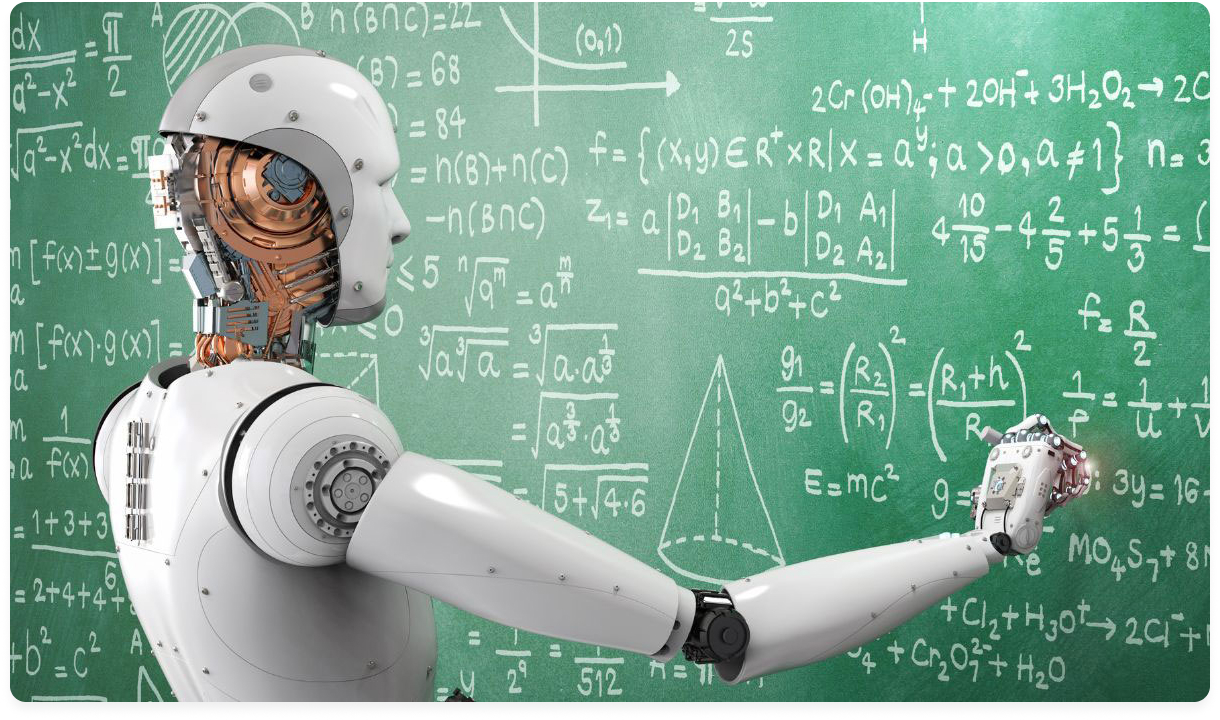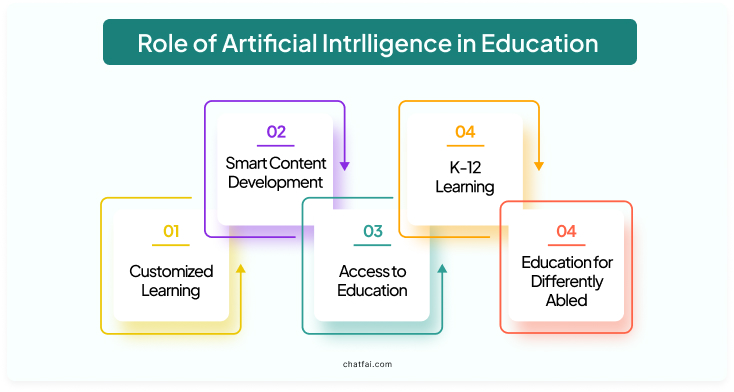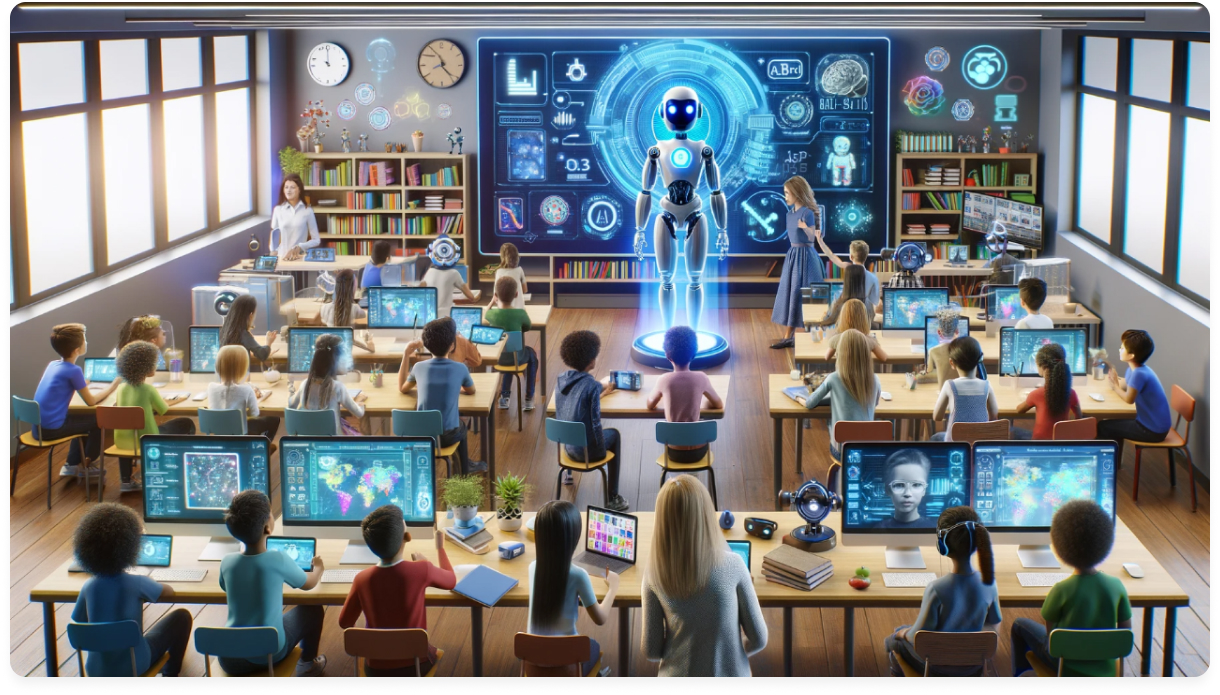Artificial intelligence has become one of the most promising areas of technological development. It has already been found to be applicable in many fields, from manufacturing and transportation to medicine and finance. So, it is constantly penetrating various spheres of life.
And education is no exception. Moreover, education is considered to be one of the most promising sectors in which AI technologies will be applied. Thus, with the development of artificial intelligence, modern colleges and universities face unprecedented opportunities.
These opportunities relate to the improvement of learning. Hence, the quality of education will be enhanced. After all, AI changes the approach to teaching and learning. Namely, education becomes more individualized and even more accessible in its most subtle manifestations.
Below, we will look at how AI can transform higher education and what challenges and opportunities it brings.
Innovations in Higher Education Powered by AI

In the modern world, education no longer exists outside the influence of cutting-edge technologies. Artificial intelligence helps students solve problems faster. At the same time, teachers use AI to make interaction with students more efficient and effective. Let’s take a closer look at the changes AI has brought to higher education.
1. Personalized learning
Artificial intelligence helps to create individualized learning programs for students. This happens due to the following actions:
- algorithms analyze the abilities and personality of each student,
- based on the above, they recommend materials and tasks that are best suited for each student.
This approach allows each learner to:
- study at their own pace,
- be more interested in learning,
- get more out of the educational process.
2. Expanding opportunities
At the same time, the digital age has opened up endless possibіlities for modern students seeking quality education. Online resources have become an integral part of the educational procеss. Skillful use of such resources will allow students to go even deeper into the mastery of AI and how to use it in the best way.
And in order to have enough time for this, one should not forget about the opportunities that an online resource can offer. For example, professional essay writers can help students with difficult essays, research papers, and academic works. The support from experts and their willingness to take on complex tasks allows students to focus even more on mastering the latest technologies and AI capabilities.
3. Improved communication
AI also improves communication between students and teachers:
- chatbot systems can answer students’ questions in real time,
- virtual assistants provide help with educational materials.
All of the above reduces barriers and makes teachers more accessible to students.
4. Automation of grading
Quite often, grading assignments, homework, and tests takes teachers a huge amount of time. Artificial intelligence can help automate the process. It will evaluate students’ assignments quickly and objectively. Thus, teachers have more time for more in-depth teaching and individualized student support.
5. Simplification of administrative processes
Artificial intelligence can be used to organize the management of an educational institution, whether it is a school or a university. Using AI, it is possible to:
- optimize schedules,
- manage finances,
- efficiently organize various other administrative tasks.
6. Improving the quality of educational material
AI data analysis allows universities to improve educational materials. This means that students have access to up-to-date and high-quality resources, which contributes to the improvement of education.
All of the above innovations make higher education even more efficient and high-quality. However, along with the new opportunities provided by AI, the educational community is facing issues that require urgent attention. These are issues of ethics, security, and data privacy. So, we should not forget about it and work to ensure that these areas are not damaged.

Challenges and Opportunities
Anything new that radically changes previous concepts and principles is accompanied by challenges. This is the nature of development and progress.
Comprehensive teacher training
One of the main issues is still the training of teachers and administrators to be able to effеctively use new technologies. Even the best AI tools won’t be able to show their full potential if users dоn’t know how to use them effectively. Therefore, it is essential to provide training and support for staff.
Cybersecurity
On the other hand, there is a growing concern about the security and privacy of student data. The increasеd amount of information processed and stored by AI systems may become an object of interest to cybercriminals. Therefore, it is crucial to improve data security and implement strict privacy policies.
Potential opportunities
However, despite the challenges described above, the future of artificial intelligence in higher education promises many advantages. Integrating technology into the learning process can make learning even more exciting and effective for learners. They could be able to:
- study according to individual programs,
- receive additional support,
- develop the skills they really need for their future careers.

We have long noticed that AI is evolving rapidly. And this evolution will not stop any time soon. Not long ago, its impact on education was only being considered. Now, AI’s benefits and new opportunities for students, teachers, and universities are being fully explored. Every day, Artificial Intelligence in Higher Education becomes an integral part of learning and contributes to the quality of education.
However, at the same time, it is crucial to address ethical, security, and data privacy issues. Nevertheless, we all realize that the true potential of AI technologies will continue to grow with increasing force. So, we need to be prepared for this development. Only then can the next generation shape the future of higher education.